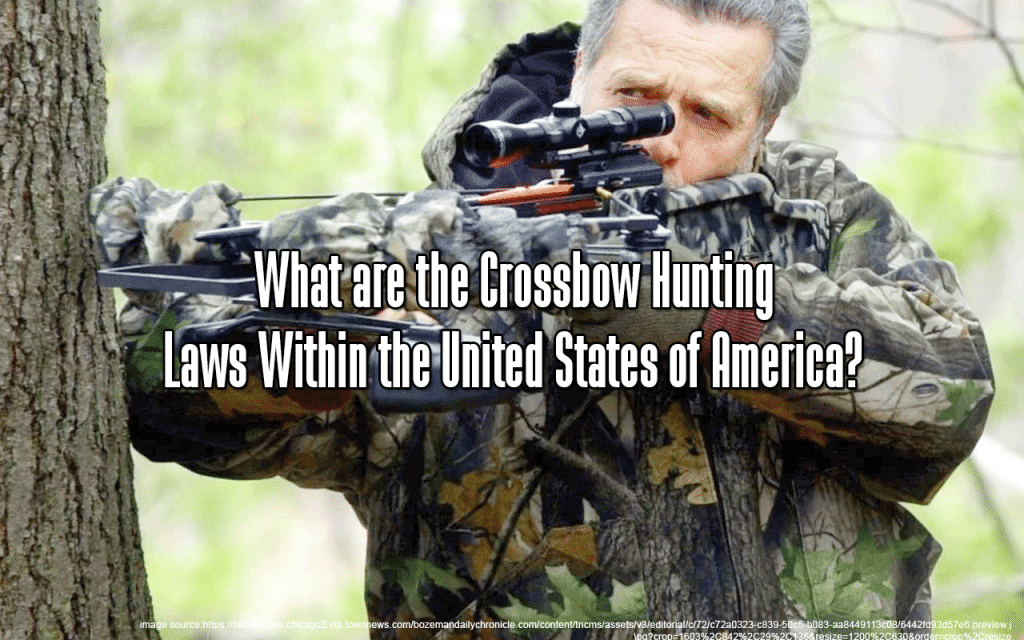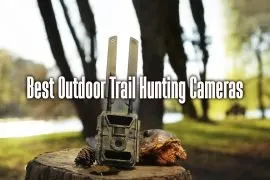Crossbow-looking has become more and more famous in the United States over the last few long time. Initially taken into consideration with skepticism through traditional archers, crossbows are, in reality, identified as a legitimate and effective tool for looking. When using crossbows in each searching approach, we face substantial laws and policies being exchanged from the kingdom to the USA. Whether you are a seasoned hunter or new to the game, it is important to understand the prison landscape earlier than heading into the woods with a crossbow. Crossbow hunting laws in the United States of America include state rules, licensing, and ethical considerations for a safe, legal experience.
Understanding Crossbows: An Overview
Table of Contents
Before diving into the specific legal guidelines, it’s beneficial to apprehend what a crossbow is and how it differs from different types of bows. A crossbow consists of a horizontal bow hooked up on an inventory, much like a rifle. It shoots projectiles referred to as crossbow bolts or quarrels, which are shorter and heavier than conventional arrows. Unlike a vertical bow, which calls for the archer to draw and hold the string while aiming, a crossbow is cocked and held in an area robotically, allowing the hunter to intention more step by step.
This mechanical advantage makes crossbows handy to a broader range of people, along with those with physical disabilities or less body electricity. As a result, crossbow looking has unfolded new possibilities for many people who might not otherwise participate in archery hunting.
Federal vs. State Regulations
When discussing crossbow hunting laws and legal guidelines, it’s important to differentiate between federal and US regulations. Diploma offices across the country are regularly asked for criminal tips. This means that each kingdom sets its own rules and guidelines for doing so. Federal jail pointers commonly come into play in cases concerning endangered species, migratory birds, or searching on federal lands. For crossbow looking, you’ll commonly be involved with us regarding prison suggestions. Despite the fact that federal pointers might also need to be studied in certain situations.
General Trends in Crossbow Hunting Laws
Over the past many years, many states have liberalized their crossbow hunting laws and legal guidelines. Hunters with bodily disabilities have frequently limited the use of crossbows. States have improved the use of crossbows to encompass the overall searching population as their effectiveness and recognition have grown.
State-through-State Overview of Crossbow Hunting Laws
Given the diversity of legal guidelines across America, we will wreck down crossbow hunting regulations by area, overlaying key factors, which include accredited seasons, licensing requirements, and any special regulations.
Northeastern States
Maine
- Permitted Seasons: Crossbow hunting is authorized for deer and other game species throughout the everyday archery season.
- Licensing Requirements: A person needs a permit for a crossbow, similar to an everyday searching license.
- Special Restrictions: Hunters over the age of 70 can hunt with a crossbow for the duration of the regular firearms season.
New York
- Permitted Seasons: During a part of the early archery season and the late archery/muzzleloader season, you are allowed to hunt using a crossbow.
- Licensing Requirements: Hunters must have finished a crossbow-looking course or display evidence of archery certification.
- Special Restrictions: Crossbows may not be utilized in Suffolk County or Westchester County.
Pennsylvania
- Permitted Seasons: Crossbows are prisons for all archery seasons for deer, endure, turkey, and other game species.
- Licensing Requirements: A standard searching license is sufficient; no additional allows are required.
- Special Restrictions: None.
Southern States
Alabama
- Permitted Seasons: Crossbows are criminal throughout all deer-looking seasons, along with archery, muzzleloader, and gun seasons.
- Licensing Requirements: No one requires unique allowances.
- Special Restrictions: None.
Florida
- Permitted Seasons: During crossbow seasons, it is allowed to look with a crossbow for standard guns and small sports.
- Licensing Requirements: To obtain a hunting license and a crossbow permit is necessary.
- Special Restrictions: Hunters with disabilities are allowed to use crossbows during certain stages of archery season.
Texas
- Permitted Seasons: Crossbows are a felony at some stage in all general and unique archery seasons.
- Licensing Requirements: No one requires extra allowances.
- Special Restrictions: During archery season, no regulations prohibit the use of crossbows.
Midwestern States
Illinois
- Permitted Seasons: Crossbows are prison during all archery seasons.
- Licensing Requirements: No extra permits are required. However, hunters need to have a standard-looking license and habitat stamp.
- Special Restrictions: None.
Michigan
- Permitted Seasons: In all archery seasons, except in the Upper Peninsula, crossbows are allowed to be used instead of regulations being observed.
- Licensing Requirements: A crossbow permit is required to obtain a looking license
- Special Restrictions: Hunters aged 10 and older are allowed to use crossbows for hunting in positive counties within the Upper Peninsula.
Wisconsin
- Permitted Seasons: Crossbows are a felony for all archery seasons.
- Licensing Requirements: A separate crossbow license is needed except if the hunter is elderly, 65 or older, or has an incapacity.
- Special Restrictions: None.
Western States
Colorado
- Permitted Seasons: Crossbow hunting is generally not allowed at some stage in archery season, except for hunters with disabilities.
- Licensing Requirements: Hunters must have a valid hunting license and an incapacity permit if looking all through archery season.
- Special Restrictions: Crossbows are criminal at some point in all other large recreation seasons.
Arizona
- Permitted Seasons: Crossbows are criminal throughout general hunting seasons and during archery season for hunters with disabilities.
- Licensing Requirements: For the archery season, a well-known-looking license is required, and you need a disability allowance.
- Special Restrictions: None.
California
- Permitted Seasons: During the archery and preferred hunting seasons, crossbow hunting is allowed.
- Licensing Requirements: You don’t need to obtain any additional permits.
- Special Restrictions: During archery-best seasons, hunters are not allowed to use crossbows unless they have an incapacity.
Alaska and Hawaii
Alaska
- Permitted Seasons: Crossbows are a felony throughout all hunting seasons until restrained in unique areas.
- Licensing Requirements: A hunting license is needed. However, no special crossbow allowed is vital.
- Special Restrictions: Certain endeavors to manipulate devices can also have unique policies on crossbow use.
Hawaii
- Permitted Seasons: Before they are allowed to search for crossbows, hunters must obtain an incapacity and a precisely detailed permit.
- Licensing Requirements: Hunters with disabilities want a specific allowance.
- Special Restrictions: Safety and conservation issues impose particular constraints on the use of crossbows.
Common Restrictions Across States
While the specifics vary, several common subjects emerge in crossbow searching hints throughout the United States:
- Permitted Seasons: In many states, crossbows are allowed at some point during everyday archery seasons. However, a few states limit their use to precise instances of the 3 hundred and sixty 5 days, along with firearm or muzzleloader seasons.
- Licensing and Permits: Most states require hunters to have a favored searching license. Some states furthermore require a separate crossbow permit or evidence of archery certification.
- Hunter Education: Many states mandate hunter education publications, which may include particular crossbow use education.
- Age Restrictions: Many states have age policies for crossbow hunters, commonly wanting them to be at least 12 or 16 years old.
- Disability Accommodations: Many states allow hunters with physical disabilities to use crossbows throughout archery seasons, so long as they get the vital lets in or clinical exemptions.
- Equipment Regulations: States would possibly have specific rules regarding crossbow draw weight, bolt length, and unique device specs to ensure ethical practices.
Hunting on Federal Lands

Hunters must observe additional rules when hunting on federal lands, including country-wide forests and natural world refuges. These policies frequently reflect the country’s legal guidelines. They may also impose particular restrictions on the types of guns allowed or the species that can be hunted. It’s important to check with the managing employer before looking on federal land to ensure compliance with all relevant guidelines.
Ethical Considerations
Regardless of the legal requirements, ethical-looking practices are paramount. Crossbows are powerful weapons capable of handing over lethal force at a distance, but they require ability and exercise to apply effectively. Hunters should familiarize themselves with their devices, exercise regularly, and ensure they can make accurate, humane shots. An understanding of the anatomy of the hunted sport is essential for making easy kills and avoiding unnecessary struggling on the hunter’s part.
Conclusion
Crossbow hunting is a profitable and challenging pursuit that offers a completely unique enjoyment for hunters across the USA. However, the legal landscape is so complex and varies considerably from state to country. Whether you’re new to crossbow searching or a seasoned veteran, staying informed about the legal guidelines of your nation—and any federal regulations that you can practice—is essential for a safe and successful experience.
As crossbow hunting continues to evolve, so too will the crossbow hunting laws and policies governing its exercise. Hunters have to stay updated on any modifications to make certain they remain compliant with all legal necessities. Ultimately, accountable and moral hunting, mixed with intensive information on the regulation, will assist in keeping this time-honored lifestyle for future generations.







